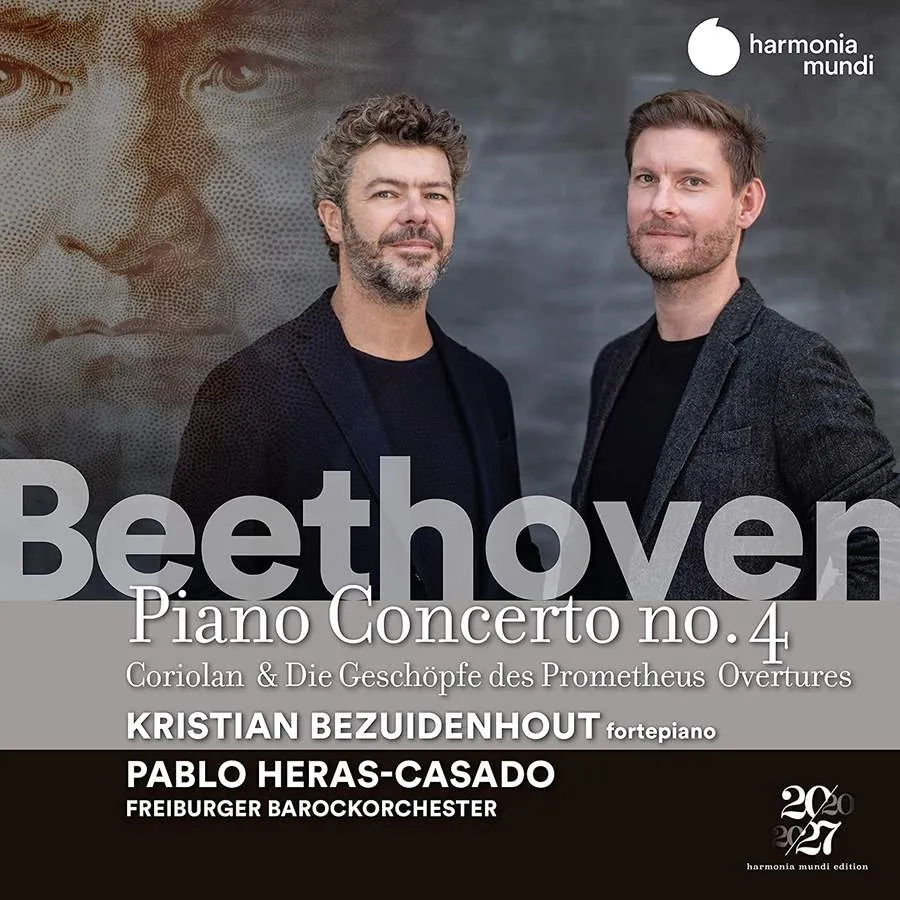
Beethoven Piano Concerto No. 4 in G major, Op. 58; Corolian, Op. 62 – Overture; The Creatures of Promtheus, Op 43 – Overture Kristian Bezuidenhout (piano); Freiburg Baroque Orchestra/Pablo Heras-Casado Harmonia Mundi HMM902413 44:34 mins
In his booklet note, Kristian Bezuidenhout touches on an issue raised by Beethoven’s legendary talent as an improviser: how much should this influence a pianist’s approach to the solo part in his concertos? The question is especially pertinent as the soloist’s music was often only very sketchily written out when Beethoven himself first performed them. So here we have devices which aren’t necessarily meant to sound contentious but nonetheless do, such as the upwards-rolled solo chord that opens the Fourth Concerto, and similar examples elsewhere.
Bezuidenhout’s fortepiano – a modern copy of a Conrad Graf of 1824, a brand known to Beethoven – has its oddities too: its impressively sonorous middle and low registers don’t really connect with a top one that sounds attractively luminous in broken-chord figuration, but too often thin and clattery in simple melodic lines or running passagework. And while Pablo Heras-Casado’s conducting gets a superbly strong and alert orchestral response, the slow movement’s heavily emphasised, ultra-detached string notes come across over-harsh, as does the general insistence on the driest kind of non-vibrato sound. The total effect is rather the opposite of what’s surely intended: instead of a sense of renewed musical freshness, the result sounds like a point-making museum exhibit, hampering appreciation of Bezuidenhout’s otherwise personable and engaging musicianship.
More satisfying are the two overtures, where the period-sound layering, rather than blending of orchestral sonorities, convinces strongly. Given the recording’s mere 45-minute duration, a couple more similar items would have been welcome.
Malcolm Hayes
